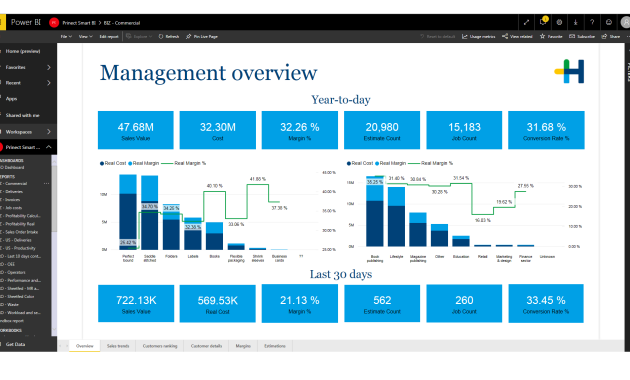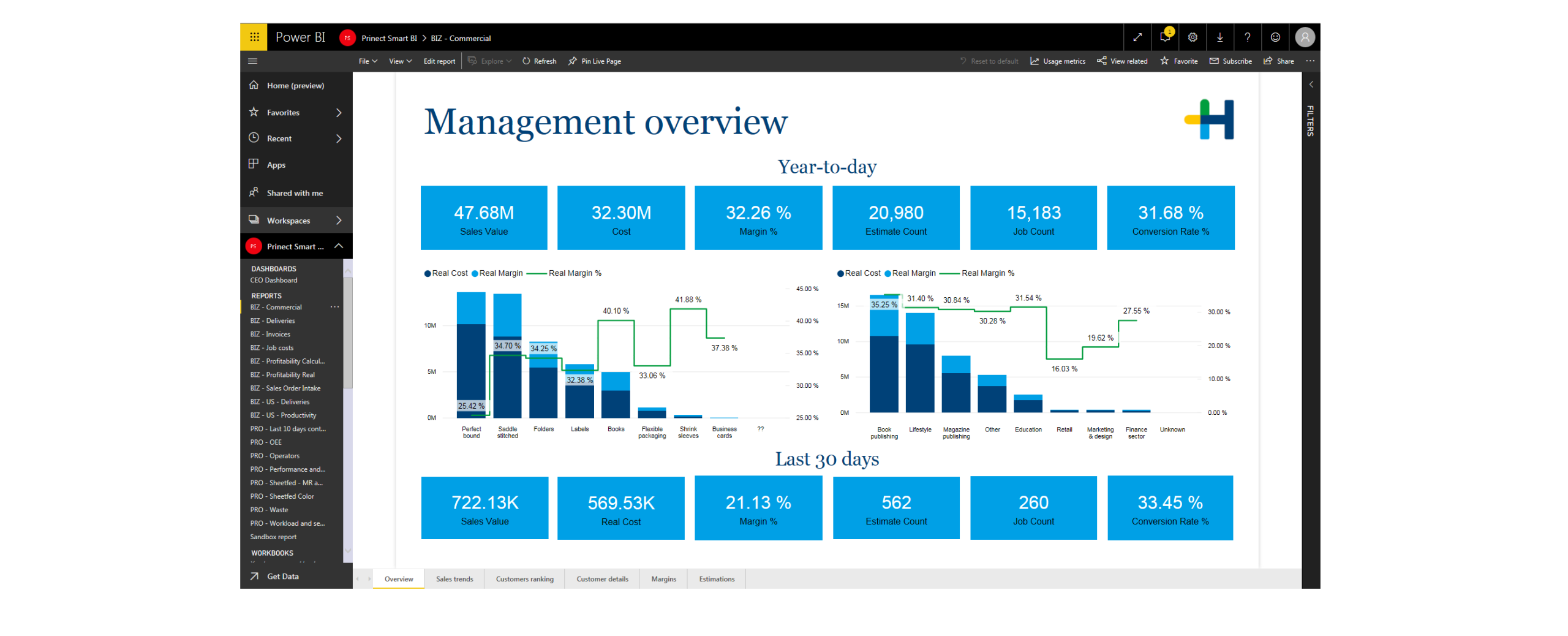
Smart Planning Using Business Intelligence Software: A Strategic Advantage in Today’s Market
In today’s fast-paced business environment, the ability to make informed decisions quickly is paramount. Companies are constantly seeking ways to gain a competitive edge. One of the most effective tools for achieving this is smart planning using business intelligence software. This article will delve into the transformative power of BI software. It will explore how it empowers businesses to make better decisions and drive sustainable growth. We will examine its key features, benefits, and practical applications. We will also discuss how to choose the right software for your specific needs. The integration of smart planning using business intelligence software is no longer a luxury. It is now a necessity for organizations that want to thrive.
Understanding Business Intelligence and Its Role in Smart Planning
Business intelligence (BI) refers to the technologies and processes used to analyze data. The data is used to improve decision-making. It involves collecting, processing, and analyzing data from various sources. The sources can be internal or external. The goal is to identify trends, patterns, and insights. These insights can then inform strategic planning. Smart planning using business intelligence software is the key to unlocking these insights. It empowers businesses to move beyond gut feelings and make data-driven decisions.
BI software provides a centralized platform for data analysis. It offers a range of tools, including:
- Data visualization dashboards
- Reporting and analytics
- Data mining and predictive modeling
These tools enable users to:
- Gain a holistic view of their business performance
- Identify areas for improvement
- Forecast future trends
- Optimize resource allocation
Ultimately, BI transforms raw data into actionable intelligence. This intelligence is then used for smart planning using business intelligence software. This leads to better strategic outcomes.
Key Features of Effective Business Intelligence Software
Choosing the right BI software is crucial for achieving the desired results. The best software offers a comprehensive set of features designed to support smart planning using business intelligence software. Some of the most important features include:
- Data Integration: The ability to connect to and integrate data from various sources. These sources can include databases, spreadsheets, cloud services, and more.
- Data Visualization: Powerful data visualization tools. These tools allow users to create interactive dashboards and reports.
- Reporting and Analytics: Robust reporting and analytical capabilities. These capabilities enable users to generate custom reports and perform advanced analysis.
- Data Mining and Predictive Analytics: Advanced analytics features such as data mining, predictive modeling, and forecasting. These features help users anticipate future trends.
- User-Friendly Interface: An intuitive and easy-to-use interface. The interface makes it accessible to users of all skill levels.
- Mobile Accessibility: The ability to access data and reports on mobile devices.
- Security: Robust security features to protect sensitive data.
These features work together to provide a complete solution for smart planning using business intelligence software. They support data-driven decision making.
Benefits of Smart Planning Using Business Intelligence Software
The implementation of smart planning using business intelligence software offers numerous benefits for businesses of all sizes. Some of the most significant advantages include:
- Improved Decision-Making: BI software provides access to accurate and timely data. It empowers decision-makers to make more informed choices.
- Increased Efficiency: Automation of data analysis and reporting processes. This frees up valuable time and resources.
- Enhanced Customer Understanding: Deeper insights into customer behavior. This leads to better customer service and targeted marketing campaigns.
- Cost Reduction: Identification of areas for cost optimization and waste reduction.
- Competitive Advantage: The ability to quickly identify and respond to market changes. This helps businesses stay ahead of the competition.
- Improved Forecasting: More accurate forecasting of future trends. This helps with resource allocation and strategic planning.
- Better Risk Management: Early detection of potential risks. This allows for proactive mitigation strategies.
These benefits translate into improved financial performance. They also lead to greater operational efficiency and a stronger competitive position. Smart planning using business intelligence software is a critical investment.
Real-World Applications of Business Intelligence in Smart Planning
The applications of smart planning using business intelligence software are diverse. The software can be applied across various industries and business functions. Here are some examples:
- Sales and Marketing: Analyzing sales data to identify top-performing products. Targeting marketing campaigns based on customer segmentation.
- Finance: Monitoring financial performance. Identifying trends in revenue and expenses.
- Operations: Optimizing supply chain management. Improving inventory control and streamlining production processes.
- Human Resources: Analyzing employee performance. Identifying training needs and improving employee retention.
- Healthcare: Improving patient outcomes. Optimizing resource allocation in hospitals.
- Retail: Understanding customer purchasing behavior. Optimizing store layouts and product placement.
These examples highlight the versatility of BI software. They show its ability to drive value across different business functions. The use of smart planning using business intelligence software can be transformative.
Choosing the Right Business Intelligence Software for Your Needs
Selecting the right BI software is essential for successful implementation. Consider the following factors when making your choice:
- Your Business Needs: Define your specific goals and requirements. Identify the data sources you need to integrate.
- Scalability: Choose software that can grow with your business.
- Ease of Use: Opt for a user-friendly interface. Make sure it is accessible for all users.
- Integration Capabilities: Ensure the software can integrate with your existing systems.
- Security: Prioritize security features. Protect your sensitive data.
- Cost: Evaluate the total cost of ownership. Consider licensing fees, implementation costs, and ongoing maintenance.
- Vendor Support: Choose a vendor that provides excellent customer support and training.
By carefully considering these factors, you can select the BI software that best fits your needs. This will help you achieve effective smart planning using business intelligence software.
Implementing Business Intelligence for Smart Planning: Best Practices
Successful implementation of smart planning using business intelligence software requires a strategic approach. Here are some best practices to follow:
- Define Clear Objectives: Establish specific, measurable, achievable, relevant, and time-bound (SMART) goals.
- Data Quality: Ensure data accuracy and completeness. This is crucial for reliable analysis.
- User Training: Provide adequate training to all users. This will help them use the software effectively.
- Data Governance: Establish clear data governance policies. Maintain data integrity and security.
- Iterative Approach: Start with a pilot project. This allows you to test and refine your approach.
- Regular Monitoring: Continuously monitor the performance of your BI solution. Make adjustments as needed.
- Executive Sponsorship: Secure buy-in from senior management. This will ensure the project’s success.
Following these best practices will maximize the value of your BI investment. It will also ensure effective smart planning using business intelligence software.
The Future of Smart Planning and Business Intelligence
The future of smart planning using business intelligence software is promising. The industry is constantly evolving. New technologies like artificial intelligence (AI) and machine learning (ML) are transforming BI. These innovations are providing:
- More advanced analytics capabilities
- Automated insights
- Improved forecasting accuracy
As these technologies continue to develop, BI will become even more powerful. Businesses will be able to make even better decisions. They can also drive greater value from their data. The use of smart planning using business intelligence software will be critical in the future.
Conclusion: Embracing Smart Planning for a Competitive Edge
Smart planning using business intelligence software is a critical tool. It is essential for businesses seeking a competitive advantage. By leveraging the power of BI, organizations can make better decisions. They can also drive greater efficiency and achieve sustainable growth. Choosing the right software, implementing best practices, and embracing the latest technologies are key. These keys will help you unlock the full potential of your data. Invest in BI today. Position your business for success in the future. The ability to leverage data effectively is the key to success.
[See also: Related Article Titles]

